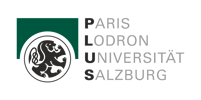Contents & Procedure of the Master’s Programme
The total volume of the master’s program is 120 ECTS, of which 108 ECTS are compulsory courses in Communication Science and 12 ECTS are free electives. This corresponds to a four-semester planned study period, after which graduates are awarded the title “Master of Arts” (MA).
The program is divided into six modules: the master’s thesis and the master’s examination. Modules 3 to 5 are offered as compulsory elective modules.
Students have to choose between two specialisations in Communication Studies: Comparative Communication and Media Studies (A) and Digital Communication Cultures (B) at the beginning of the programme. Each specialisation consists of 3 bound elective modules (3A, 4A, 5A or 3B, 4B, 5B). A change between the bound elective modules is not permitted.

